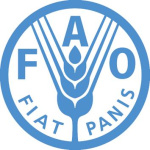- Branche: Agriculture
- Number of terms: 87409
- Number of blossaries: 0
- Company Profile:
Established in October 1945 with the objective of eliminating hunger and improving nutrition and standards of living by increasing agricultural productivity, FAO coordinates the efforts of governments and technical agencies in programs for developing agriculture, forestry, fisheries, and land and ...
The plane of cell wall orientation or cell division perpendicular (at right angles) to the surface of an organ.
Industry:Biotechnology
The plateau of the growth curve after log growth, during which cell number remains constant. New cells are produced at the same rate as older cells die.
Industry:Biotechnology
The point at which a scion from one plant is joined to a stock from another plant.
Industry:Biotechnology
The polynucleotide strand that a polymerase uses for determining the sequence of nucleotides during the synthesis of a new nucleic acid strand.
Industry:Biotechnology
The portion of a DNA molecule which is replicable from a single origin. Plasmids and the chromosomes of bacteria, phages and other viruses usually have a single origin of replication and, in these cases, the entire DNA molecule constitutes a single replicon. Eukaryotic chromosomes have multiple internal origins and thus contain several replicons. The word is often used in the sense of a DNA molecule capable of independent replication, e.g., "The shuttle vector pJDB219 is a replicon in both yeast and <i>E. coli</i>."
Industry:Biotechnology
The portion of bacteriophage lambda (1) DNA that enables bacteriophage lambda (1) DNA to be inserted into a specific site in the <i>E. coli</i> chromosome and excised from this site.
Industry:Biotechnology
The portion of the chromosome to which the spindle fibres attach during mitotic and meiotic division. It appears as a constriction when chromosomes contract during cell division. After chromosomal duplication, which occurs at the beginning of every mitotic and meiotic division, the two resultant chromatids are joined at the centromere.
Industry:Biotechnology
The portion of the electromagnetic spectrum that results in the production of positive and negative charges (ion pairs) in molecules. X-rays and gamma rays are examples of ionizing radiation.
Industry:Biotechnology
The portion of the electromagnetic spectrum with wavelengths from about 100 to 400 nm; between ionizing radiation (X-rays) and visible light. UV is absorbed by DNA and is highly mutagenic to unicellular organisms and to the epidermal cells of multicellular organisms. UV light is used in tissue culture for its mutagenic and bactericidal properties.
Industry:Biotechnology
